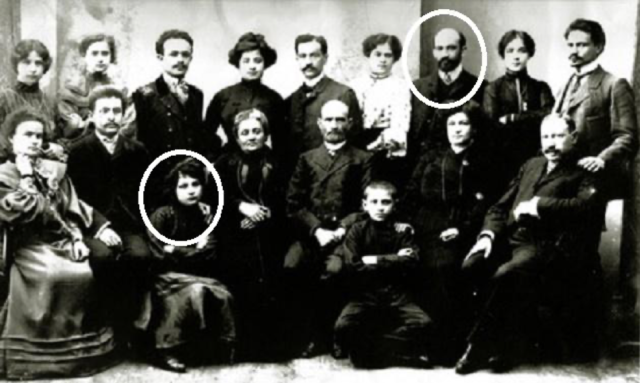
Spying in the Holy Land is a very old profession, dating back more than 3,500 years to when a disguised Joseph accused his brothers of spying in Egypt. [Genesis: 42] Moses sent 12 spies to Canaan to check on the land’s inhabitants, defenses, and economy. [Numbers:13] And, upon entering the land after 40 years of wandering in the desert, Joshua sent out two spies to reconnoiter the fortress city of Jericho. [Joshua: 2]
World War I in the Holy Land was also well-populated with tales of espionage and some very intriguing spies providing intelligence for the German, British, and Turkish armies. They include a Christian Jerusalemite who spied for Britain, a Jewish Jerusalemite reporting to Turkey, a Russian Jewish woman who spied for Germany, and the well-known Jewish espionage ring, NILI, working for Britain.
Fanny was the nickname of a young, attractive Berlin-trained doctor who immigrated to the Jewish homeland from near Pinsk in Russia in 1913. She was the first of her family to make “aliyah” – immigrating to Palestine. Perhaps her loneliness made her easy prey for Curt Prüfer, a polyglot German diplomat known for his philandering. But Prüfer was also the head of German intelligence in Palestine, and he charmed Fanny into becoming one of his spies against the British. The British were allied with Czarist Russia, and it probably wasn’t too hard to turn Fanny, an anti-czarist socialist (who even dallied with the Bund as a teenager).
World War I had broken out and Prüfer provided intelligence to the Ottoman leaders and assisted in planning the Turkish attack on the British-controlled Suez Canal.
Prüfer dispatched his recruit and paramour to Egypt in May 1915, where she was welcomed as a doctor at the overcrowded British military hospitals and as an ingenue in British, Russian, French, and Jewish circles in Cairo and Alexandria. Egypt was a candy shop for the young, attractive German doctor and spy.
Fanny’s family connections certainly helped as well: Fanny – Minna Weizmann was her full name – was the youngest sister of the Zionist leader and pro-British scientist Chaim Weizmann.
Minna Weizmann in Egypt ran into a dilemma: how to deliver her information to her German spymasters. She embarked across the Mediterranean accompanying a badly wounded French soldier. In Rome, she delivered her information to the German ambassador to Italy, not aware that the embassy was under British surveillance. Weizmann was arrested and taken back to Egypt for trial – and possible execution. “Instead,” wrote blogger FarOutliers, “Weizmann’s considerable charms, combined with old-fashioned chivalry, produced a far more pleasant outcome… She was deported to Russia in the fall of 1915.”
Weizmann was shown “remarkably tender treatment,” according to Scott Anderson in his book Lawrence in Arabia: War, Deceit, Imperial Folly and the Making of the Modern Middle East.
A Central Intelligence Agency (CIA) study on The Role of Military Intelligence in the Battle for Beersheba in October 1917, reported she was “generously returned to Russia.” CIA analyst James Noone suggests in his article The Modernization of Intelligence, “Minna’s lenient treatment has led to speculation she was a herself a double agent [who worked] against Prüfer.”
After the war, Weizmann re-emigrated to Palestine where she worked in the Hadassah-Rothschild Hospital’s obstetrics department in Jerusalem. She rented an apartment from the well-known Hebraist Eliezer Ben-Yehuda and attended the high society salons of Jerusalem. Apparently, at one such gathering, she met British Army Captain Alfred Noel Law, a Christian. The intermarriage was a rare event and may be one of the factors explaining why she is barely mentioned in Chaim Weizmann’s autobiography.
Dr. Minna Weizmann practiced medicine until her death in 1925 at the age of 35.
Her German handler, Curt Prüfer, returned to Germany where he worked in the Foreign Ministry. In December 1937 he joined the Nazi Party, and in 1943, he was appointed head of the ministry’s Oriental Department where he oversaw the liaison with the Grand Mufti of Jerusalem, Haj Amin Al-Husseini, a sworn enemy of the Jews of Palestine.
Lenny Ben-David is a former Israeli diplomat in Washington and author of American Interests in the Holy Land Revealed in Photographs, 1840-1940.

